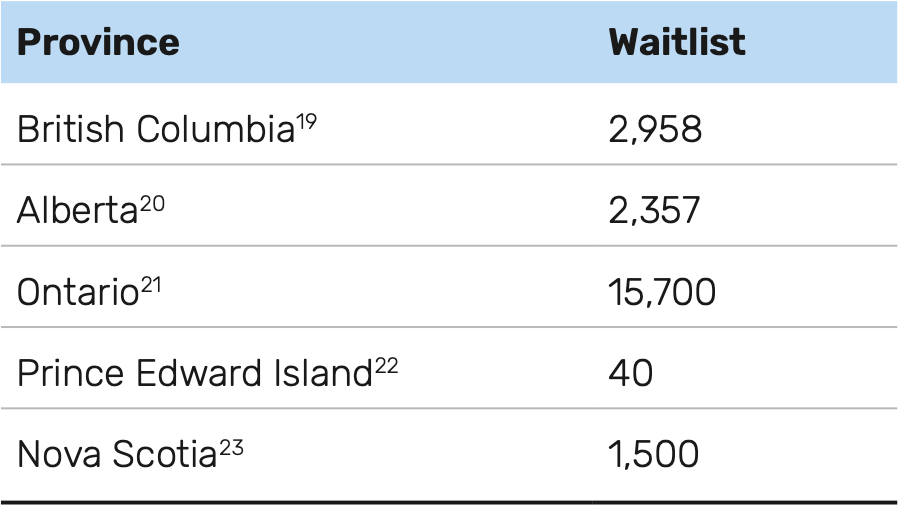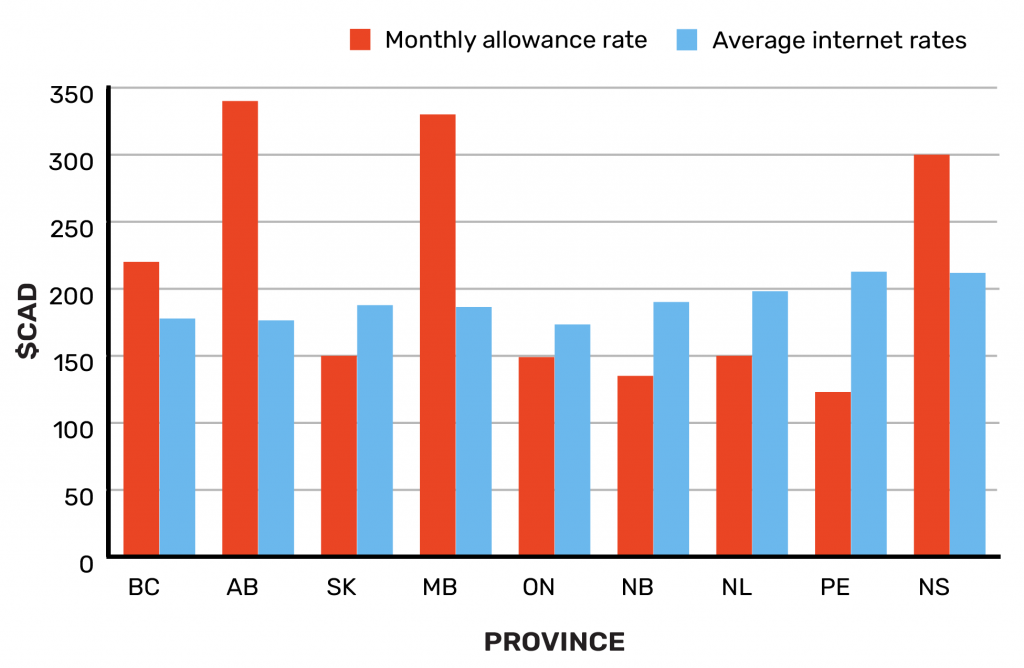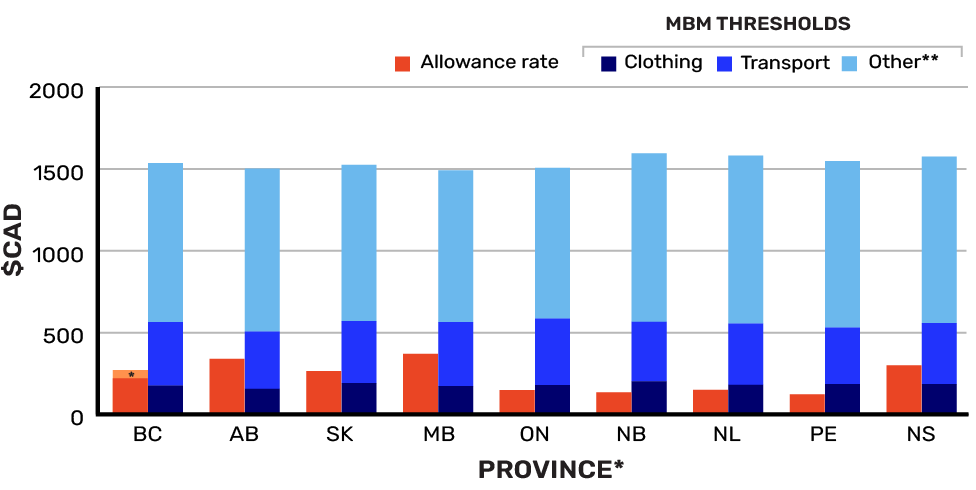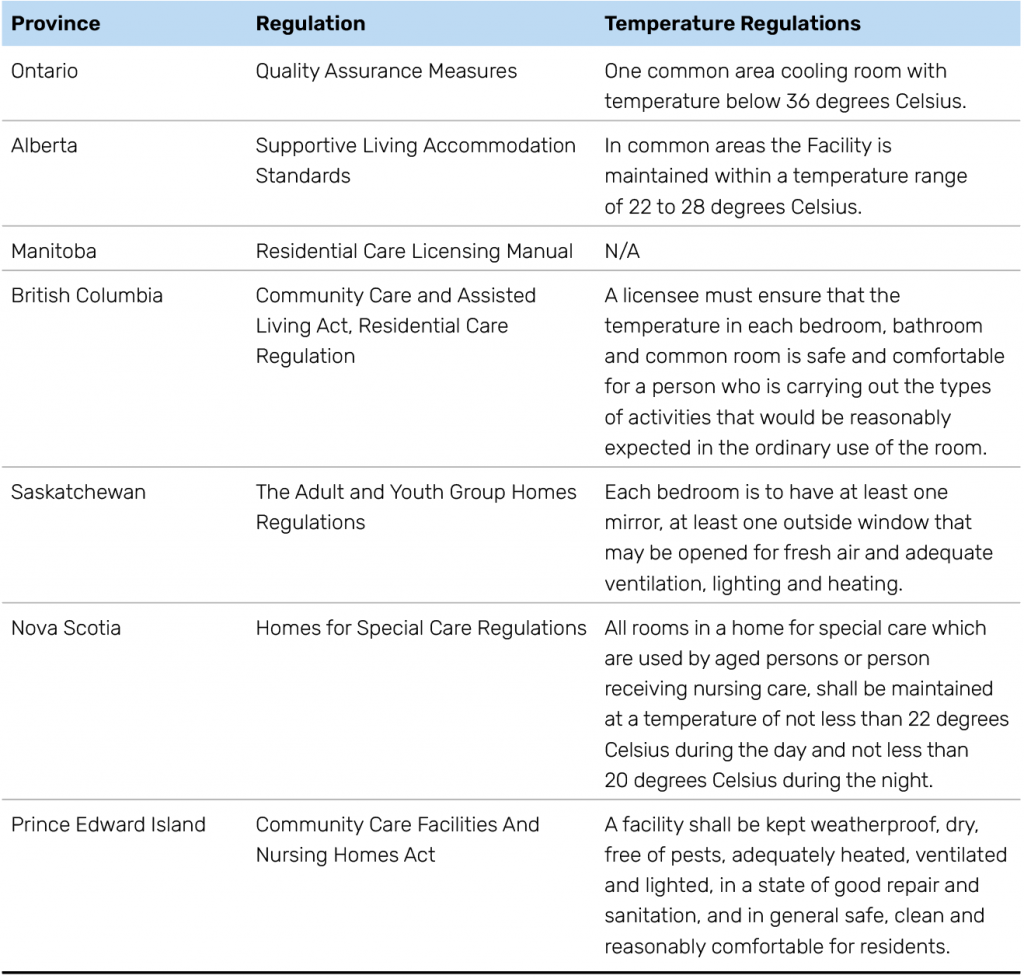These policy briefs work to create a more complete picture of the impacts of institutionalization on the lives of people labelled with intellectual disabilities. These briefs provide tangible recommendations & practices that seek to improve the lives of institutionalized people on the journey to deinstitutionalization. There are five briefs covering federal data on institutionalization, institutional allowances in congregate settings, extreme weather events and institutions, internet access within institutions, and long-term care usage among adults labelled with intellectual/developmental disabilities.
This research was undertaken as part of People First of Canada and Inclusion Canada’s Joint Task Force on Deinstitutionalization’s Invisible Institutions Project. Invisible Institutions seeks to address gaps in understanding the ways in which people labelled with Intellectual/Developmental Disabilities (I/DD) experience systems of institutionalization. There are five policy briefs, each with a plain language version.
Jump to…
- Institutionalization of People Labelled with Intellectual or Developmental Disabilities in Long-Term Care
- Communication and Technology Access
- Nothing About Us: Addressing Institutional Exclusion from Federal Disability Data
- Institutional Allowances & the Canadian Disability Benefit Act
- Extreme Heat, HVAC & People labelled with Intellectual or Developmental Disabilities
Policy Brief #1
Institutionalization of People Labelled with Intellectual or Developmental Disabilities in Long-Term Care
Executive Summary
- People labelled with intellectual or developmental disabilities are reinstitutionalized in long-term care facilities as a result of shortages in affordable housing, community living services and home care.
- Long-term care facilities are highly institutional environments that prevent personal freedoms, decision making and autonomy for people with disabilities.
- As a signatory to the United Nations Convention on the Rights of Persons with Disabilities (UNCRPD), Canada has an obligation to ensure that people with disabilities have the freedom to choose their place of residence and live in community.

Available waitlists for community living services
Institutionalization and Long-Term Care Facilities (plain language translation)
Summary
This paper is about where people with intellectual or developmental disabilities live in Canada. It is about places called ‘long term care facilities.’ This information is about the situation in Canada.
Policy Brief #2
The Digital Divide for Persons with Disabilities: Institutional Internet, Communication and Technology Access
Executive Summary
- Residential institutions for persons with disabilities are not required to have wireless internet access available for residents.
- Low rates of social assistance for persons with intellectual or developmental disabilities in Canada are prohibitive to accessing technology and wireless internet access.
- Access to the internet for persons with intellectual or developmental disabilities can help with augmented and alternative communication, social development, labour force participation, and education opportunities.
- There are multiple Government of Canada initiatives seeking to build a barrier-free Canada and increase access to internet, communications, and technology. These initiatives should be mobilized with partners to fund the development and maintenance of institutional internet access, technology grants, and resources to improve digital literacy and citizenship for persons with disabilities.

Internet Access in Institutions (plain language translation)
Summary
This paper is about people labelled with intellectual or developmental disabilities who live in institutions. It is about their access to the internet. This information is about the situation in Canada.
Policy Brief #3
Nothing About Us: Addressing Institutional Exclusion from Federal Disability Data
Executive Summary
- There has not been a national survey on persons with disabilities who live in institutions for the past 30 years.
- The Census and Canadian Survey on Disability (CSD) excludes people with disabilities living in residential institutions.
- Excluding people with disabilities who live in institutions from national and disability-specific data collection makes it difficult to implement evidence-based policy, assess commitments to the United Nations Convention on the Rights of Persons with Disability (UNCRPD) and evaluate contemporary policies.
- To adequately address these gaps, Statistics Canada should re-implement and modernize the Health and Activity Limitation Survey methodology which collects data from small and medium sized institutions and samples within each large-sized institution as part of the CSD.
Including People in Institutions in Federal Disability Data (plain language translation)
Summary
This paper is about people with disabilities who live in institutional settings. It is about how they are not included in surveys and other information collected about people with disabilities.
Policy Brief #4
Institutional Allowances & the Canadian Disability Benefit Act
Executive Summary
- There has not been a national survey on persons with disabilities who live in institutions for the
- People with disabilities who are subsidized to live in institutional settings are entitled to monthly allowances but are disqualified from accessing other disability income supports.
- The current rates of institutional allowances are very low and prohibit adequate quality of life and community involvement for persons with disabilities.
- People with disabilities, particularly intellectual or developmental disabilities, are most likely to live in institutional settings; as such, they are most impacted by forced poverty through extremely low institutional allowance rates.
- Federal income supplements should be used to top off monthly allowances to ensure that all people living in institutional settings are receiving at least $1000/month in personal allowances.

Allowances in Institutions and the Canadian Disability Benefit Act (plain language translation)
Summary
This paper is about people who live in institutions. It is about how little money they get for an allowance. This money is meant to cover many things. The allowances are not enough to cover basic needs like a cell phone and an internet plan or clothes and other needs. The allowance for people living in institutions should be at least $1,000 per month.
Policy Brief #5
Extreme Heat, HVAC & People labelled with Intellectual or Developmental Disabilities
Executive Summary
- The number of Very Hot Days has doubled since 1980, and are modelled to increase annually regardless of global climate mitigation efforts.
- People with intellectual or developmental disabilities are more likely to have comorbidities that increase risk of heat-related stress and death.
- Current congregate settings policies for heating, ventilation and air conditioning policies (HVAC) are insufficient to mediate environmental risks.

Temperature Regulations in Congregate Living Facilities
Extreme Heat, Heating and Cooling Systems in Institutions (plain language translation)
Summary
This paper is about people with disabilities who live in institutional settings. It is about how they are not
This paper is about extreme heat events and the effects on people with intellectual or developmental disabilities who live in institutional settings.
There are more days with extremely hot temperatures. This number has doubled in the past 40 years. This will increase even more in the coming years. This will happen even with efforts to reduce climate change. People labelled with intellectual or developmental disabilities will be affected by extreme heat. They are more likely to have other conditions that increase their risk of being harmed or dying from extreme heat. Institutional settings do not have good enough systems for heating and cooling to reduce these risks.
